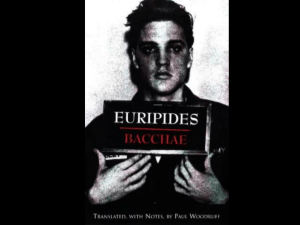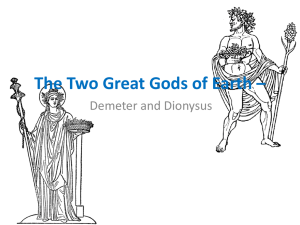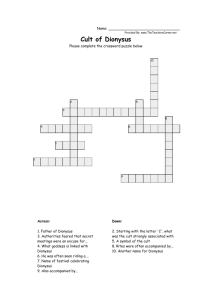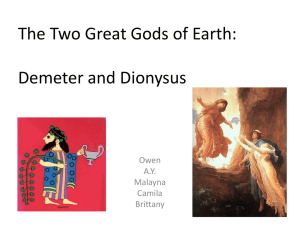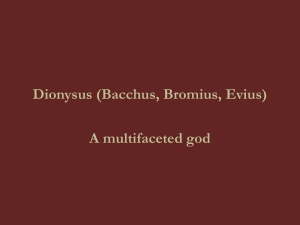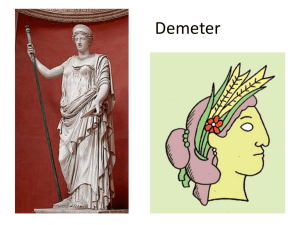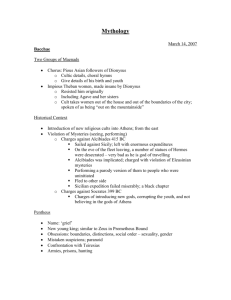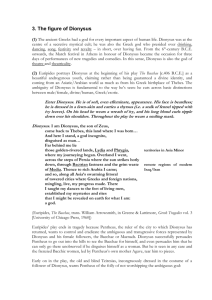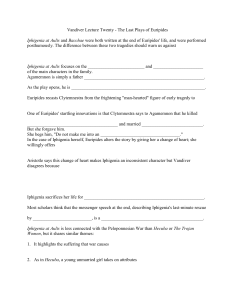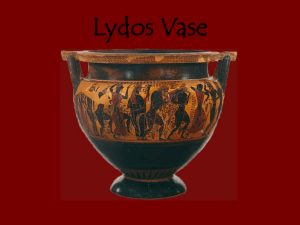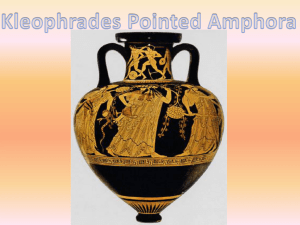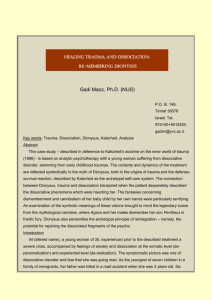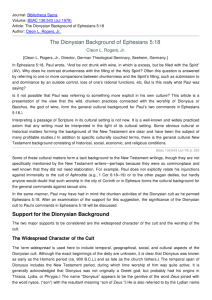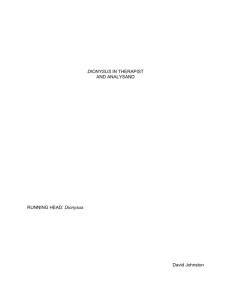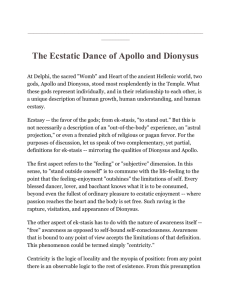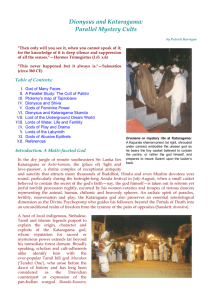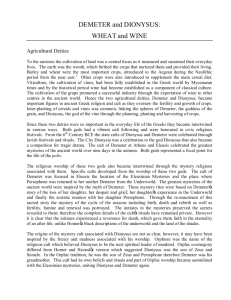Recognizing Dionysus In encounters with Dionysus, mortals are
advertisement
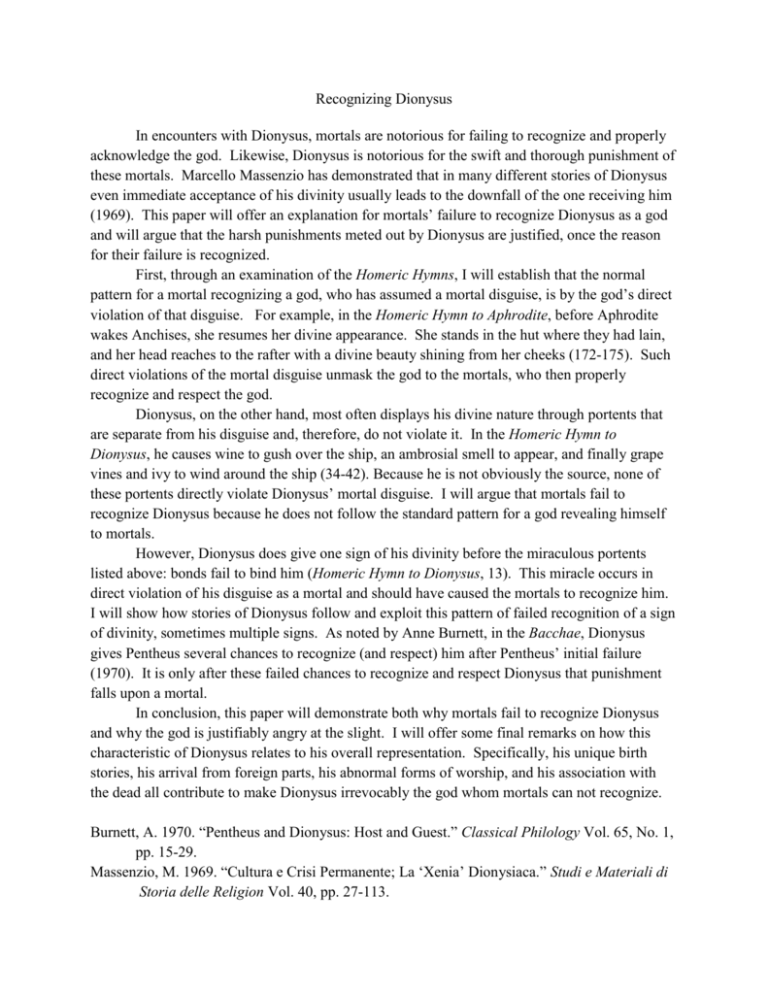
Recognizing Dionysus In encounters with Dionysus, mortals are notorious for failing to recognize and properly acknowledge the god. Likewise, Dionysus is notorious for the swift and thorough punishment of these mortals. Marcello Massenzio has demonstrated that in many different stories of Dionysus even immediate acceptance of his divinity usually leads to the downfall of the one receiving him (1969). This paper will offer an explanation for mortals’ failure to recognize Dionysus as a god and will argue that the harsh punishments meted out by Dionysus are justified, once the reason for their failure is recognized. First, through an examination of the Homeric Hymns, I will establish that the normal pattern for a mortal recognizing a god, who has assumed a mortal disguise, is by the god’s direct violation of that disguise. For example, in the Homeric Hymn to Aphrodite, before Aphrodite wakes Anchises, she resumes her divine appearance. She stands in the hut where they had lain, and her head reaches to the rafter with a divine beauty shining from her cheeks (172-175). Such direct violations of the mortal disguise unmask the god to the mortals, who then properly recognize and respect the god. Dionysus, on the other hand, most often displays his divine nature through portents that are separate from his disguise and, therefore, do not violate it. In the Homeric Hymn to Dionysus, he causes wine to gush over the ship, an ambrosial smell to appear, and finally grape vines and ivy to wind around the ship (34-42). Because he is not obviously the source, none of these portents directly violate Dionysus’ mortal disguise. I will argue that mortals fail to recognize Dionysus because he does not follow the standard pattern for a god revealing himself to mortals. However, Dionysus does give one sign of his divinity before the miraculous portents listed above: bonds fail to bind him (Homeric Hymn to Dionysus, 13). This miracle occurs in direct violation of his disguise as a mortal and should have caused the mortals to recognize him. I will show how stories of Dionysus follow and exploit this pattern of failed recognition of a sign of divinity, sometimes multiple signs. As noted by Anne Burnett, in the Bacchae, Dionysus gives Pentheus several chances to recognize (and respect) him after Pentheus’ initial failure (1970). It is only after these failed chances to recognize and respect Dionysus that punishment falls upon a mortal. In conclusion, this paper will demonstrate both why mortals fail to recognize Dionysus and why the god is justifiably angry at the slight. I will offer some final remarks on how this characteristic of Dionysus relates to his overall representation. Specifically, his unique birth stories, his arrival from foreign parts, his abnormal forms of worship, and his association with the dead all contribute to make Dionysus irrevocably the god whom mortals can not recognize. Burnett, A. 1970. “Pentheus and Dionysus: Host and Guest.” Classical Philology Vol. 65, No. 1, pp. 15-29. Massenzio, M. 1969. “Cultura e Crisi Permanente; La ‘Xenia’ Dionysiaca.” Studi e Materiali di Storia delle Religion Vol. 40, pp. 27-113.
